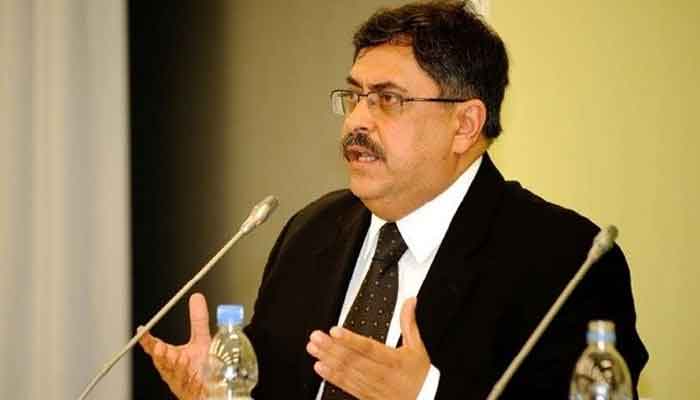Undermining freedom of the press is a hallmark of regressive states: IHC
Islamabad High Court comments on journalist Rana Muhammad Arshad's petition against the FIA
ISLAMABAD: The Islamabad High Court issued a detailed order in which it told the Federal Investigation Agency (FIA) that the state and its agents cannot use " power and authority to silence voices".
The court's detailed order was issued in the Rana Muhammad Arshad petition — a journalist who had alleged that an FIA investigating officer had raided his house and harassed him and his family.
Arshad's lawyers had said during previous hearings that because of opinions and views expressed by him on social media, he was being harassed by the FIA’s Cybercrime Wing.
The investigating officer appeared before the court and submitted a written report in which he claimed to have visited the complainant's house only to verify his address. The high court said that the investigation officer did not provide any evidence of wrongdoing against the suspect.
"He has further stated that, during the course of investigation, no incriminating material whatsoever could be collected against the petitioner," read the IHC's order.
The court spoke about the notice issued by the investigating officer to the petitioner, stating that it was vague and had not mentioned the accusations against the journalist.
"In response to the query of this Court, he explained that the petitioner was summoned because the cellular number mentioned in the complaint was registered in his name. He could not give a plausible explanation for sending the undated notice or failure to disclose the purpose for summoning the petitioner," stated the court.
The court said that the petitioner had claimed he was being harassed due to his critical views on social media against state functionaries. "
"Such an apprehension or fear in the mind of a person who is engaged in the occupation of reporting and dissemination of information to the public not only undermines the independence of the occupation but is intolerable in a society governed under a Constitution," stated the IHC.
"Freedom of speech and expression is the most cherished human right and fortifies the other constitutionally guaranteed rights."
Touching upon the rights of journalists, the court said that blocking, inhibiting or limiting free speech and thus undermining freedom of the press are hallmarks of regressive states and are unacceptable in a society governed under a constitution.
The court said that without a free press, the most marginalised segments of the society are exposed to suffering as the elite become unaccountable and more powerful.
"The state and its agents cannot be allowed to use power and authority to silence voices and to retaliate against critical reporting or dissent. Only informed citizens having access to an independent and free press can ensure progress, prosperity and security of the state," stated the order.
The court noted, with disappointment, that a surge in similar petitions of journalists alleging harassment had been observed. "This creates a perception of abuse of the provisions of the PECA 2016," read the order.
Justice Minallah directed the DG FIA to formulate special guidelines for investigating officers in proceeding against journalists.
"It is further expected that the Agency will consider prescribing special guidelines regarding proceedings against persons engaged in the profession of journalism on account of the profound effect on the freedom of press and independence of a journalist when the coercive powers are abused,giving rise to a perception of retaliation to professional function," said the court.
-
Security forces gun down 30 terrorists in multiple IBOs in KP: ISPR
-
MQM-P calls for new province in Sindh
-
US report validates Pakistan military edge over India: PM
-
Banned TTP poses serious threat to Pakistan security: UNSC panel
-
CM Afridi clarifies remarks on by-poll after ECP requests army deployment
-
Dubai sees 3.2m Pakistani passengers in 2025 as airport sets new milestone
-
Security forces kill 23 Indian proxy terrorists in KP's Kurram
-
Pakistan to construct island to boost oil exploration: report












